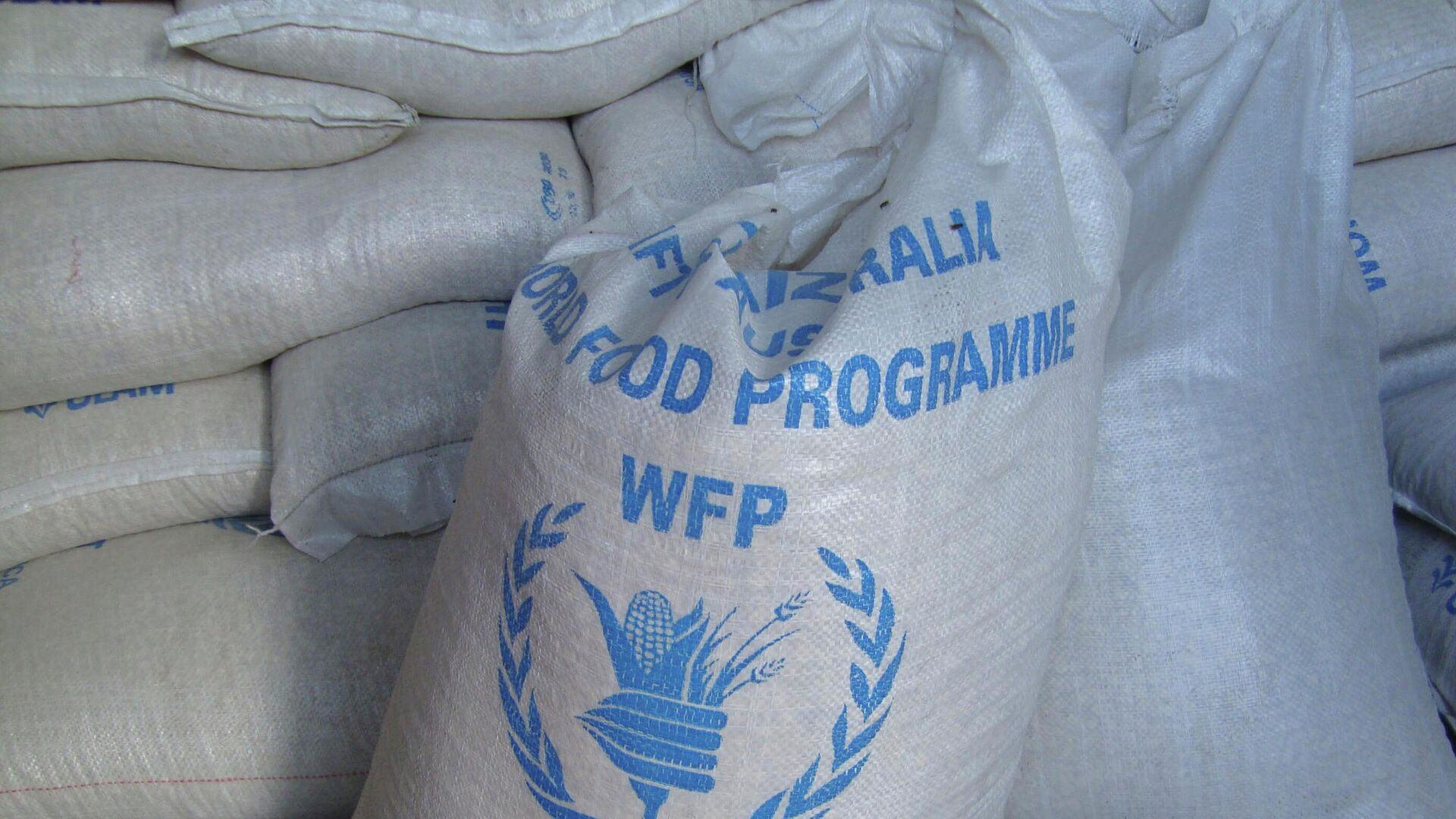UN Opens Probe into ‘Sex-for-Food’ Exploitation of Women in Mozambique’s War-Torn Cabo Delgado
20:20 GMT 25.02.2022 (Updated: 06:57 GMT 14.02.2023)

© AP Photo / Stringer
Subscribe
The United Nations has opened a new probe into fresh allegations that officials in northern Mozambique forced women to give them sexual favors in return for food distribution.
According to Africa News, the head of the UN World Food Program’s (WFP) operation in Mozambique’s northern Cabo Delgado province, Mauricio Bortee, met with local officials on Thursday to discuss the allegations.
An Islamist insurgency has plagued the impoverished Muslim-majority region for five years, displacing close to 1 million people and killing more than 3,600.
As Sputnik has reported, several natural gas mining and processing facilities being built by international petroleum corporations, as well as an extensive ruby mining operation, have antagonized the local population for years, with hired private security forces being blamed for numerous abuses. The rise of the militant group Al-Shabab (the youth), unrelated to the Somali group of the same name, has paralleled the development of the mining projects.
Accusations of such sex-for-food coercions go back almost as far. After Cyclone Idai zigzagged its way across Mozambique and Malawi in March 2019, killing more than 1,500 people and devastating the region, Human Rights Watch (HRW) reported on sex-for-food allegations. The New York-based non-governmental organization (NGO) noted that a contributing problem was that only male heads of family were listed on aid reports, leaving women to haggle for foodstuffs for their families, which often led to sexual favors.
The following year, Mozambican NGO The Center for Public Integrity reported on widespread sex-for-food aid incidents in Cabo Delgado.
“In all the houses we entered, dozens and dozens, in many neighborhoods, this issue was always confirmed: in all of them, people knew about this type of case,” Borges Nhamire, one of the co-authors of the report, told Lusa Agency at the time.
Nhamire said that the subject was “treated as a great taboo by government authorities and the United Nations agencies that coordinate assistance to displaced people in Cabo Delgado,” including the WFP, International Organization for Migration (IOM), and UN High Commissioner for Refugees (UNHCR).
The authorities “allow NGOs to work as long as they do not contradict the good image of the State or governmental institutions” and “raising this issue would jeopardize the good image,” Nhamire explained. “That's why a lot of people don't talk about it."
HRW investigated again in September 2021, with researcher Zenaida Machado telling AFP it was “very widespread” and “a common practice.”
Defeating a Stubborn Insurgency
After Al-Shabab mounted a more serious attack in early 2021, raiding the port city of Palma, French gas giant Total declared force majeure on its massive gas project at Afungi, which when completed will be the largest such facility in Africa. In the aftermath, Mozambican President Felipe Nyusi appealed to the international community for help, and the South African Development Community (SADC) and Rwanda dispatched thousands of troops to help Maputo fight the militant group.
Earlier this month, Total announced it planned to restart Afungi in 2022, as the international force has made significant gains against Al-Shabab, pushing the group far inland and capturing or killing many of its top leaders.
Brussels-based think tank International Crisis Group (ICG) noted in a February 10 report that the international deployment has had a profound effect on the conflict.
"In a short period, the soldiers have dismantled all the insurgents' major bases and seized important territory they once held," the report said. However, they warned that the insurgency was showing a dangerous shift toward asymmetric warfare, including the use of booby-trapped improvised explosive devices (IEDs).
However, experts have warned that there is likely not a purely military solution to the conflict, as insurgencies are often grounded in deeper social malaise.
“We need more than just weapons to end this conflict, something more than military operations,” Mozambique’s Defense Minister, Maj. Gen. Cristovao Chume, told ICG in an interview for the report.
“Aid money can help mitigate civilian suffering, but what the youth who are fighting really want is a sense of social justice and a permanent stake in the future of Cabo Delgado”, a Cabo Delgado government adviser also said.
“Mozambique’s African partners should press Maputo to open dialogue involving political elites to set conditions that might persuade insurgents to surrender,” the report said. “While donors scale up aid in the province, the African Union should facilitate regional cooperation to dismantle the insurgency’s transnational networks and seek more funds to sustain military operations.”

